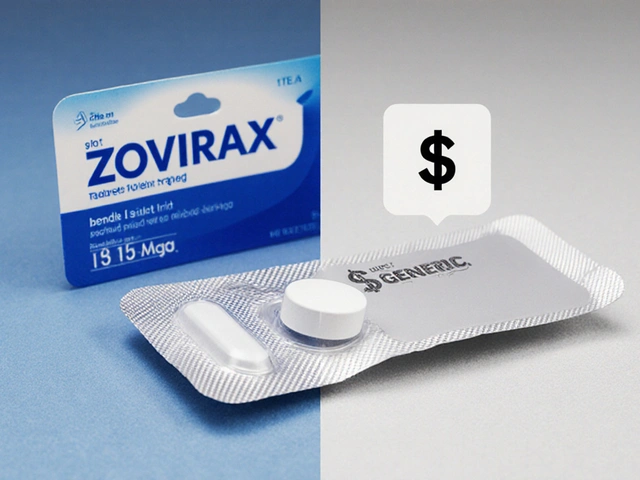Impact of Medications, Side Effects & Online Pharmacies
Drugs can help or harm depending on dose, duration, and how they mix with other meds or habits. This page pulls practical tips from articles on side effects, long‑term risks, drug interactions, and safe online buying. Read on to learn what to watch for and how to act fast when something feels off.
How medicines change your body
Every medicine has intended effects and possible drawbacks. For example, nitrates treat chest pain but can cause tolerance when used long term, and amiodarone (Cordarone) can affect thyroid and lungs. Even over‑the‑counter drugs like meclizine or doxylamine can cause daytime drowsiness or balance problems if used improperly.
Watch for new symptoms after starting a drug: sudden breathlessness, swelling, fainting, severe rash, vision changes, or unusual mood shifts. Keep a simple log of when you start a medicine, daily dose, and any new symptoms — that helps your clinician spot patterns fast.
Some interactions are surprising. Alcohol can change how spironolactone works and increase side effects. Other meds, supplements, or herbal products can raise or lower drug levels — that matters for blood thinners, thyroid meds, and many heart drugs. Always tell your prescriber and pharmacist everything you take, including vitamins.
Buying meds online without getting burned
Online pharmacies are convenient but risky if you pick the wrong one. Red flags: no prescription required for prescription drugs, prices that are way lower than competitors, vague contact info, and a lack of pharmacist access. Look for clear return policies, verifiable business address, and secure checkout (HTTPS).
Choose pharmacies that ask for a valid prescription and offer pharmacist contact. Check for trust seals and read recent reviews — but don’t rely only on star ratings. If a site ships medicines with no labeling, odd packaging, or wrong language on the leaflet, stop the order and contact your clinician.
If you need alternatives to a drug you can’t take (allergy, side effects, or access), use guides that compare options — for example, alternatives to doxycycline or Bactrim — and discuss them with your prescriber. Different drugs have different safety checks: switching diabetes or blood pressure meds requires monitoring and sometimes lab tests.
Simple habits protect you: keep an updated medication list, store meds as directed (some need cool, dry places), set reminders, and book regular checkups when on long‑term drugs like alendronate or heart medicines. When unsure, call a pharmacist or your doctor before changing or stopping a medicine.
Want help with a specific drug or an online pharmacy you found? Pick an article from the tag list for deeper how‑tos and concrete examples — from spotting fake pharmacies to understanding drug risks like thyroid‑related arrhythmias or fertility meds. Practical answers are a click away.

The Impact of Hypertension on Cognitive Function
In my latest blog post, I explored the impact of hypertension on cognitive function. It's fascinating to learn how high blood pressure can negatively affect our mental abilities, such as memory and focus. I found that prolonged hypertension can cause damage to the brain's blood vessels, leading to cognitive decline. To maintain our brain health, it's crucial to manage hypertension through lifestyle changes and medications. Check out the full post for more insights and tips on how to protect our cognitive function from the effects of high blood pressure.
View More
The Impact of Sucralfate on Gastrointestinal Motility
As a blogger, I've recently been researching the impact of sucralfate on gastrointestinal motility. Sucralfate is a medication commonly prescribed to treat and prevent ulcers in the stomach and intestines. From what I've learned, it has a protective effect on the stomach lining, which in turn aids in the healing process of ulcers. Additionally, it appears to have minimal impact on the overall gastrointestinal motility, ensuring that the digestive process is not disrupted while treating ulcers. Overall, sucralfate seems to be a safe and effective treatment option for those suffering from ulcers and other gastrointestinal issues.
View More




